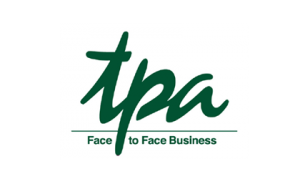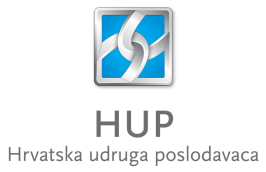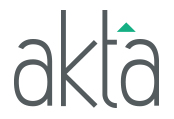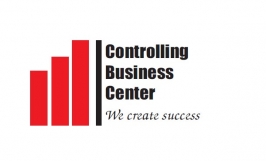9th International Controlling Conference
Quickstep between Controlling and Data Analytics







Programme
program
2.37 MB, pdf
01
Storytelling with business data
Why do we create bad charts and ineffective visuals? Why do we tell exciting stories to our friends but give a boring set of numbers at work presentations? If you have ever created a chart in Microsoft Excel, then you should attend. If you have created a chart in any other tool, then you should definitely attend. This is not an Excel manual; this presentation is about applying principles of storytelling to your business data visualizations, regardless of the tool. During this short presentation, you will learn what makes a good chart and I will l give you a step-by-step recipe for creating a good chart. You will make a shift from just showing the data to actual visual storytelling!

Predictive analytics in management forecasts: The role of social ties and local knowledge
Forecasts are supposed to provide an organization with the best estimate of future performance. They are essential for steering businesses in dynamic environments and managing relations with external stakeholders. However, they are often compromised by a lack of judgement and expertise as well as an individual's motivation and cognitive biases. Despite mechanisms to improve the forecasting process, such as accuracy incentives or the use of management accountants, forecasts have often been considered as biased and the forecasting process with all its checks and balances as cumbersome and inefficient. Algorithm-based calculations such as predictive analytics have been proposed as a promising alternative to forecasts that rely on human intelligence. However, these forecasts are not perfect either. They tend to be perceived as black boxes that do not provide enough information about what is driving the forecast, which reduces their acceptance and actionability. Furthermore, algorithms rely on historic data and might not incorporate recent or highly tacit — or implied — information. In a context of structural changes and extraordinary events, human judgement might be better suited to produce a fairly accurate forecast.
Against that backdrop, this presentation is on a recent research project that has focused on how predictive forecasting can impact corporate control. The research project investigated how companies use predictive analytics to produce more neutral and unbiased forecasts. More specifically, we explored the interplay of forecasting experts and algorithm-based calculations to analyze how algorithm-based forecasts come to be trusted.
We show how, particularly in rather dynamic environments, it is necessary to incorporate local knowledge into corporate predictive forecasts and consider how this affects the way organizations talk about and do forecasting. Based on this observation, we argue that the implementation and use of predictive analytics in management accounting is a technical but also a social practice. In addition, we discuss how the introduction of algorithmic calculations might also be helpful for driving digitalization across decentralized business units, and, in doing so, paves the way for an increasing penetration of technology across the whole organization.

Data challenges
The story of how Group reporting was developed at Orbico. We began by standardizing master data, mapping data, and adding group dimensions. Our goal was to obtain a uniform overview of all the companies in the group. We faced a lot of obstacles, such as different systems, applications, data structures and data mess. This is still an ongoing issue. After consolidating a large amount of data, we began creating standard reports and working on automatization and, whenever possible, adding more data. With enough data in place, we were able to compare and analyse it. New issues arose, such as data complexity and too much disconnected data coming from different sources. Data challenges are always present and resolving them is an ongoing process. If you want to have a flexible organization, you need to adjust to new circumstances all the time. The role of controlling is to give data meaning and establish constant communication with business. The aim is to meet business needs under rapidly changing circumstances, and to do this with the help of data.



Liquidity planning under uncertainties
Luiza and Jörn will present Liquidity Model created by them during their ICV international working group project carried our last year 2020. They used the power of Monte Carlo Simulation that is not a new tool but they found it still modern and very rarely used on a daily basis in companies.


Lunch Break
Customer profitability analysis
• Who is the right customer • How to create a customer financial profit • How to manage a win-win relationship with your customers in pandemic situation
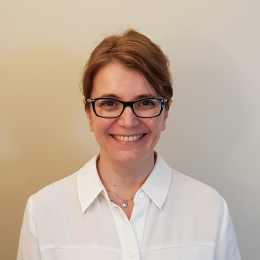
3rd rock from the Sun – understanding data science as a controller
Try and fail and learn and try and learn and deploy and learn and...it is not the “3rd rock from the sun”. Hospital managers do not have an easy task. They increasingly have to address the issue of reductions in patient hospital stays and the transfer of inpatient care to the outpatient setting. This should prevent inadequate expenditure and avoidable expenses, but also bring benefits for patients (reduction in infection rates and psychological stress caused by hospitalization, more rapid return to their home environment). After creating SWOT and stakeholder analyses, the next goal is to create a classification model to help identify emergency department patients who will return. This allows staff to better allocate their resources and the ambulance transport to better plan their service. Finally, a demonstration of how project management is designed for this purpose will be given. A mixture of agile and classic approaches is best suited for this - a predefined plan that may be adapted and rewritten. 1. What did you fail at? 2. What lessons did you learn from the experience?

Big green data: How controllers can use data analytics to drive sustainability throughout the organization
How can controllers help their organizations be more sustainable? Data analytics-based tools can help people make better decisions and most importantly, make decisions easier rather than harder. Our presentation focuses on a people-centered approach to analytics and an analytics-based approach to sustainability. This powerful combination can help controllers create and support change in this area of critical business and social importance. We identify several analytics-based approaches to improve transparency and enhance results across all three components of the triple-bottom line approach. Additionally, we introduce a set of accessible tools that controllers can use to integrate sustainability and analytics into their work, concluding with some concrete action items that will hopefully be useful to conference participants.


End of day 01
02
Flexible financial planning & forecasting – combining target setting and progress measurement using analytical driver models
There are many ways to use planning: It could be for long-term strategic reasoning, it could be for (intentionally) precise budget goals, it could be for monitoring target achievements with forecasting or plan-actual deviation analysis. Usually, a lot of manual support and discussions are necessary in order to fuel the combination of all the aforementioned approaches in the budgeting process. But more and more, budgeting is failing in a VUCA environment (volatile, uncertain, complex, ambiguous), and analytics is gaining more potential and momentum. The application of driver models allows for an intelligent automatization of the planning process, if integrated properly in the culture of a company. Based on implementation cases a framework for flexible planning and forecasting using driver models will be presented.


The digital maturity of management accounting
The corporate landscape is undergoing fundamental transformation because of technological progress and continuous digitalization. More and more data and data processing capacity are becoming available and as a result the opportunities from analysing data are growing exponentially. This session deals with the central issues of digitalizing management accounting departments: data, technologies, processes, methods, and competencies. It introduces a maturity model to measure the degree of digitalization, gives an overview of the current status and provides practice-oriented impulses on how management accounting departments can unlock digital potentials.

How to engage your front line staff in using data for daily management meetings
In our journey towards the goal of creating an operational excellence environment, we’re collectively not short of tools and how to deploy them but the real challenge is to engage our frontline people in the journey. How do we “win the hearts and minds” of our most valuable asset – people – so that they become eager to be part of the solution? What are the right tools and how do we empower them to grow through the use of these tools? Monitoring and reviewing data daily is the role of all operational staff (not just leaders) and it provides a clear direction for driving actions to effectively return to target or create a step change improvement. The ability to analyse and interrogate data is critically important for mature systems. Conversely, in young systems, managing and displaying data correctly engages operational teams on a journey to maturity. So, how do we engage staff to control the fundamentals? / Use of Daily Visual Management boards / Contributor analysis, choosing the right metrics / Data display, leading & lagging indicators / Power of the Pen, the psychology of annotation / Review routine, meeting the needs of the team / Driving actions for simple containment measures / Root cause analysis for complex problems / Examples of strong engagement models (hand annotated whiteboards) / Examples of mature engagement models (touch screens)

Who is leading the dance? Data literacy as a core competence not only for controllers
Quickstep is supposed to express an overflowing joy of life and is the last of the five standard dances in tournaments, according to the Tournament and Sport Regulations (TSO). Dancers also call it the "champagne among dances" to characterise the sparkling and joyful nature of the dance. My speech will show that controlling and data analytics are also sparkling and joyful together. But unlike dancing, it is not clear who is in the lead. Discover data literacy as the connecting element between top management, controlling and data science.

Lunch break
Using the full power of data
Use the full power of data We often hear that data has replaced oil as the world’s most valuable commodity. So, companies tend to collect more and more data from internal and external sources. Unfortunately, only a small portion of data is used and analyzed. The biggest question is how to properly utilize it and use its full potential. First, businesses should define what they want to achieve with data and then collect, sort, arrange and present it through different reports and visualizations. Reports and dashboards can tell us what happened, but only storytelling can go one step further and tell us why it happened. During this presentation you will hear how your data can be used to provide valuable business insights, understand the past, predict future events, and how become a data-driven organization.

How to successfully manage the challenge of digital transformation (in controlling) in small companies
Digital transformation will change controlling and therefore the controller profile will also change. There are several new roles and future profiles for controlling within the controlling community. These roles require very different personalities and skills. In smaller companies however, usually only one controller has to cover all aspects of controlling. I was confronted with that kind of change at the end of 2020 when I moved from KUKA Robotics (a team of around 20 controller) to a smaller company with only me as controller. I would like to share how I managed to fulfil several roles at the same time without developing multiple personalities.

IBCS with SAP Analytics Cloud
First, we will give a brief introduction to the best practices of dashboard design and IBCS - the international business communication standards. This will cover the full end-to-end process of dashboard design, from user research to the technical realization of the desired visualizations. With these design goals in mind, we will discuss the realization of these dashboard designs in SAP Analytics Cloud (SAC). We will demo automatic defaults, possible workarounds, provide a gallery of best practice dashboards realized in SAC, as well as have a discussion of current limitations. Furthermore, we will give practical tips and tricks on how to improve your SAC dashboard according to IBCS in a quick and practical way, using, among others, Templates and the Content Network.

The end

Hurry!
SIGN UP
193 eur
Regular price
+ VAT
- Regular price – 1450 kn + PDV for both days
%
Discounts
- 10% discount to Lider magazine subscribers
- 10% discount for 3 – 6 members from the same company
- 20% for 7 or more members from the same company
- 50% for students
153 eur
ICV members
- 1150 kn + PDV / 153 eur + VAT for both days
- ICV members – we reserve the right to check your membership validity with ICV.
Lider media d.o.o.
Trg žrtava fašizma 6, 10000 Zagreb
tel: +385 1 6333 500
- Bojana Božanić Ivanović, direktorica
- tel: 01/6333-505
- bojana.bozanic@lidermedia.hr
Marketing
- Krešimir Grgić (direktor)
- kresimir.grgic@lidermedia.hr
- Jelena Jagić
- jelena.jagic@lidermedia.hr
- Lucija Stipetić
- lucija.stipetic@lidermedia.hr
- Antonela Tandarić
- antonela.tandaric@lidermedia.hr
tel: 01/6333-537
Registration fees and Subscription
konferencije@lidermedia.hr
- Matija Pajurin (direktor)
- matija.pajurin@lidermedia.hr
- pretplata@lidermedia.hr
- Ivana Tomljanović
- ivana.tomljanovic@lidermedia.hr
- pretplata@lidermedia.hr
tel: 01/6333-536
Business
meetings
- Tomislav Blagaić
- tomislav.blagaic@lidermedia.hr
- Nataša Dević
- natasa.devic@lidermedia.hr
- Tina Kovačić
- tina.kovacic@lidermedia.hr
tel: 01/6333-500









